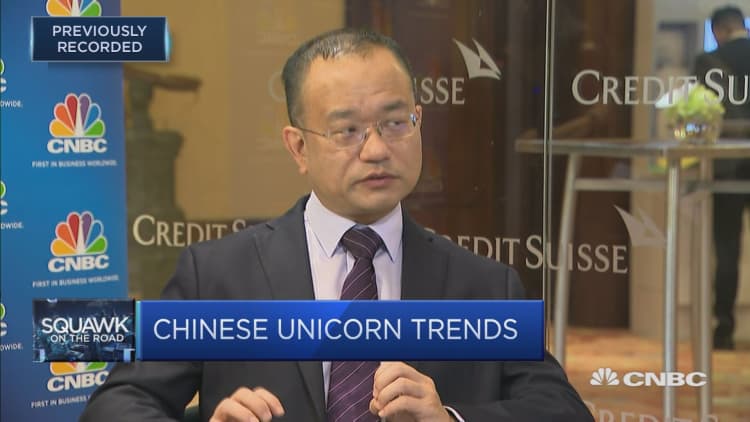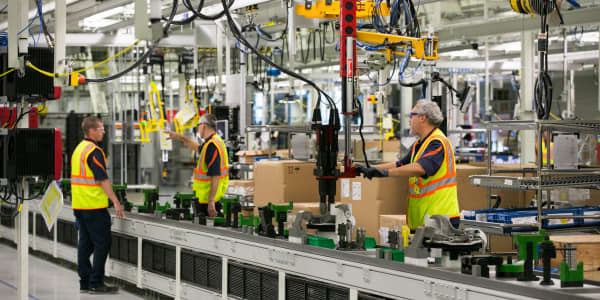
The business of government surveillance in China might spawn the rise of a new growth area, a Credit Suisse analyst said on Tuesday.
"I think China has one pretty big advantage — that they have a lot of data — part of it (is) because the government collects a lot of data," said Vincent Chan, head of China equity strategy at the investment bank.
Currently, almost half of the so-called "unicorn" startups in China — those valued at $1 billion or more — are consumer goods companies making use of existing technology. In the U.S., most unicorns are driven by new innovation through research and development.
However, new Chinese tech companies focused on artificial intelligence (AI) and robotics are surfacing — and changing the complexion of the industry.
"For example, quite a lot of AI companies in China, their biggest business is (the) public surveillance type (of business); that could be another area you could see rising," Chan told CNBC at the Credit Suisse Asian investment Conference in Hong Kong.
Public surveillance through CCTV cameras is commonplace in the country, but Big Brother is widening his reach. China has a national surveillance scheme, dubbed "Sharp Eyes," which connects government and private sector cameras and sensors. Those are loaded with facial recognition features, video analytics and AI. "Sharp Eyes" will detect crime, control access and secure commerce.
There are 326 unicorns globally, according to research firm CB Insights. About half of them are in the U.S., while roughly one-third, or over 90, are in China and Hong Kong.
Many Chinese tech firms choose to list in the U.S. However, with the Shanghai Stock Exchange set to launch a Nasdaq-style "technology innovation board" in the coming months, many big consumer firms might consider dual listings, said Chan.
But Chinese companies with a "meaningful" proportion of revenue from doing business related to government security would likely choose to list domestically, said Chan.
"It's also favorable for a company to have a domestic listing. It's not just about attracting capital, but selling your brand and showing the local people that you are not just earning their money, but you also share your wealth. These are very important considerations," he said.




